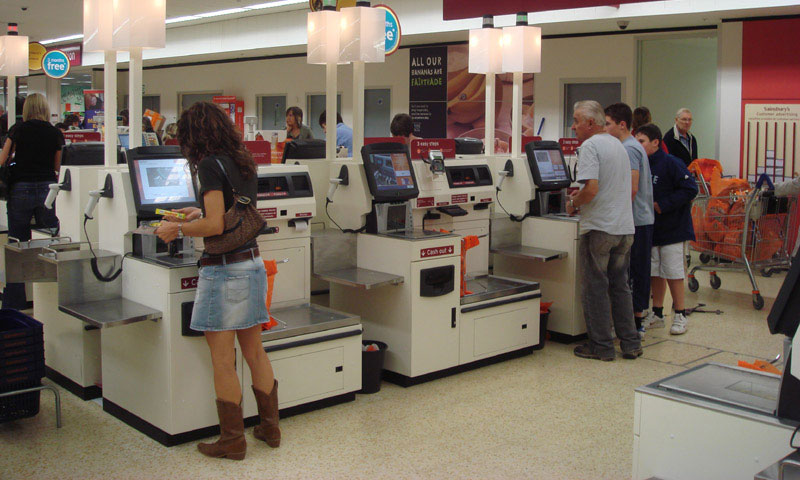
Retail’s Self-Checkout Problem Highlights Challenges With Theft in Industry
A new study released by the University of Leicester finds that popular self-service checkouts give retailers big headaches because the devices, which rely on the honor system, make it easier for consumers to shoplift.
Retail’s tendency toward tech has been a major success story in recent years, with the industry taking bold steps toward mobile payments, chip cards, and innovative marketing approaches.
But occasionally, those tech-friendly offerings have proved to have negative side effects. Case in point: self-service checkouts, which are ubiquitous in retail outlets, such as supermarkets and drug stores.
According to a new study released by the University of Leicester in the U.K, these touchscreen-driven checkout devices, which were intended to cut down on costs, have instead turned into shoplifting risks—meaning that they could end up costing more money, in some cases, than a human being playing the same role.
The reason? As The New York Times notes, the devices are effectively driven by the honor system in many cases, and some people tend to break that honor, through a variety of different approaches. For example, a consumer might use the scale on the devices to purchase expensive produce, but enter less-expensive produce in place of what they are actually buying.
The study reinforces one from the National Retail Federation earlier this year, which showed that retail inventory shrinkage, or theft, cost the industry $45.2 billion last year.
“All innovations in retailing are a business choice—hopefully done to make the shopper happier and the business more profitable,” Matt Hopkins, a researcher with the University of Leicester Department of Criminology, said in a statement. “But those same choices can also produce negative outcomes as well, such as increased opportunities for losses to occur.”
The report implies that if a person believes someone is watching them—whether through a camera or by a person—they’re much less likely to attempt to steal something. The study suggests using “place managers” to keep an eye out for questionable behavior is an effective solution to the problem—a conclusion that one major retailer, Walmart, came to on its own. Earlier this year, the company reintroduced its iconic “greeters,” putting some of them in charge of antitheft efforts.
One group, the Australian Retailers Association, suggested that the report highlighted some important cost-benefit considerations for retailers.
“The cost of the wages to employ someone to man those checkouts, should they not have self-checkouts there, must outweigh the cost that they are losing,” Carla Bridge, one of the group’s media representatives, said to 7News.
And Lisa LaBruno, senior vice president for retail operations for the Retail Industry Leaders Association, told the Times that the group’s members will “continue to test and identify effective methods for mitigating the risks.”
The full report is available here.
(iStock/Thinkstock)






Comments